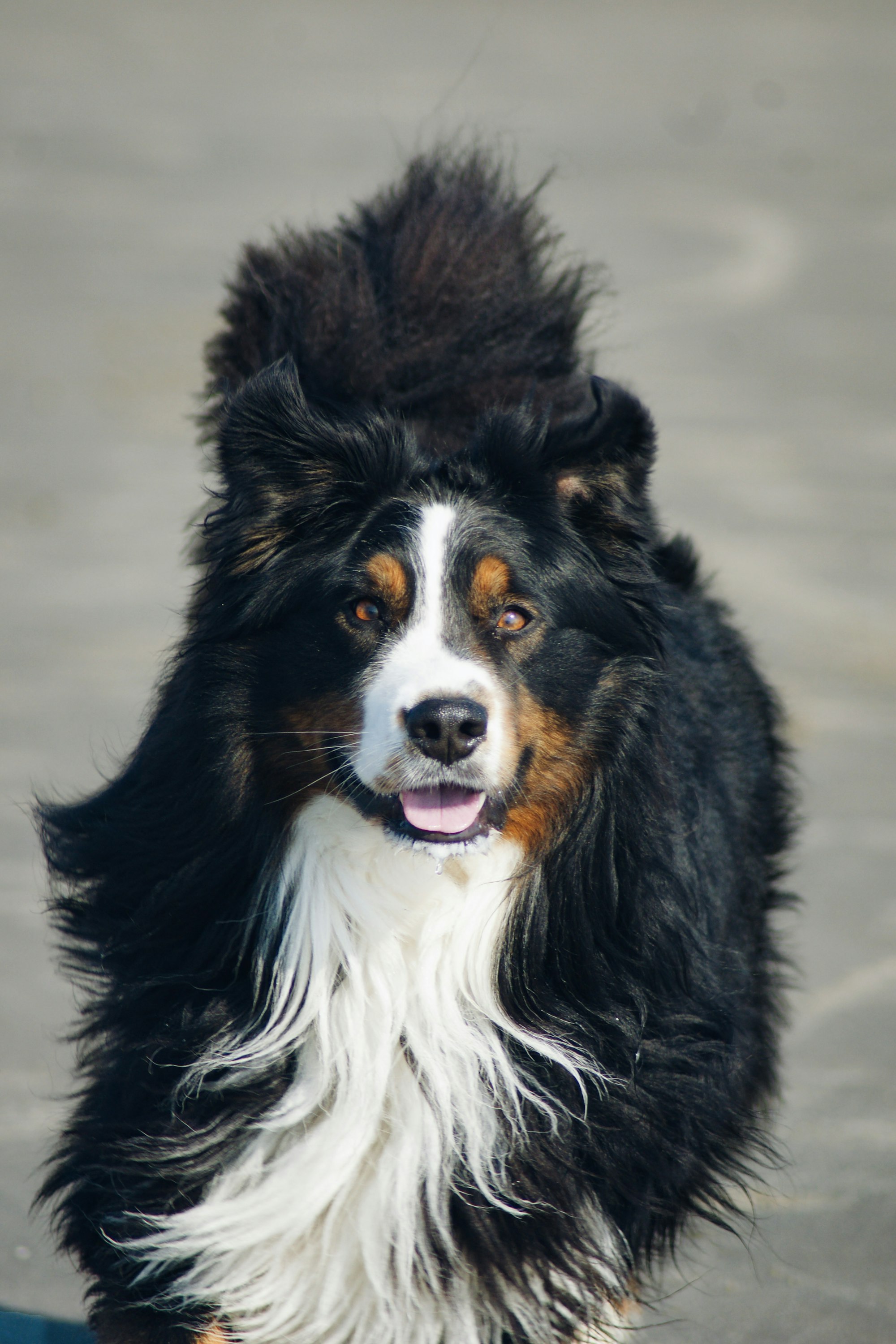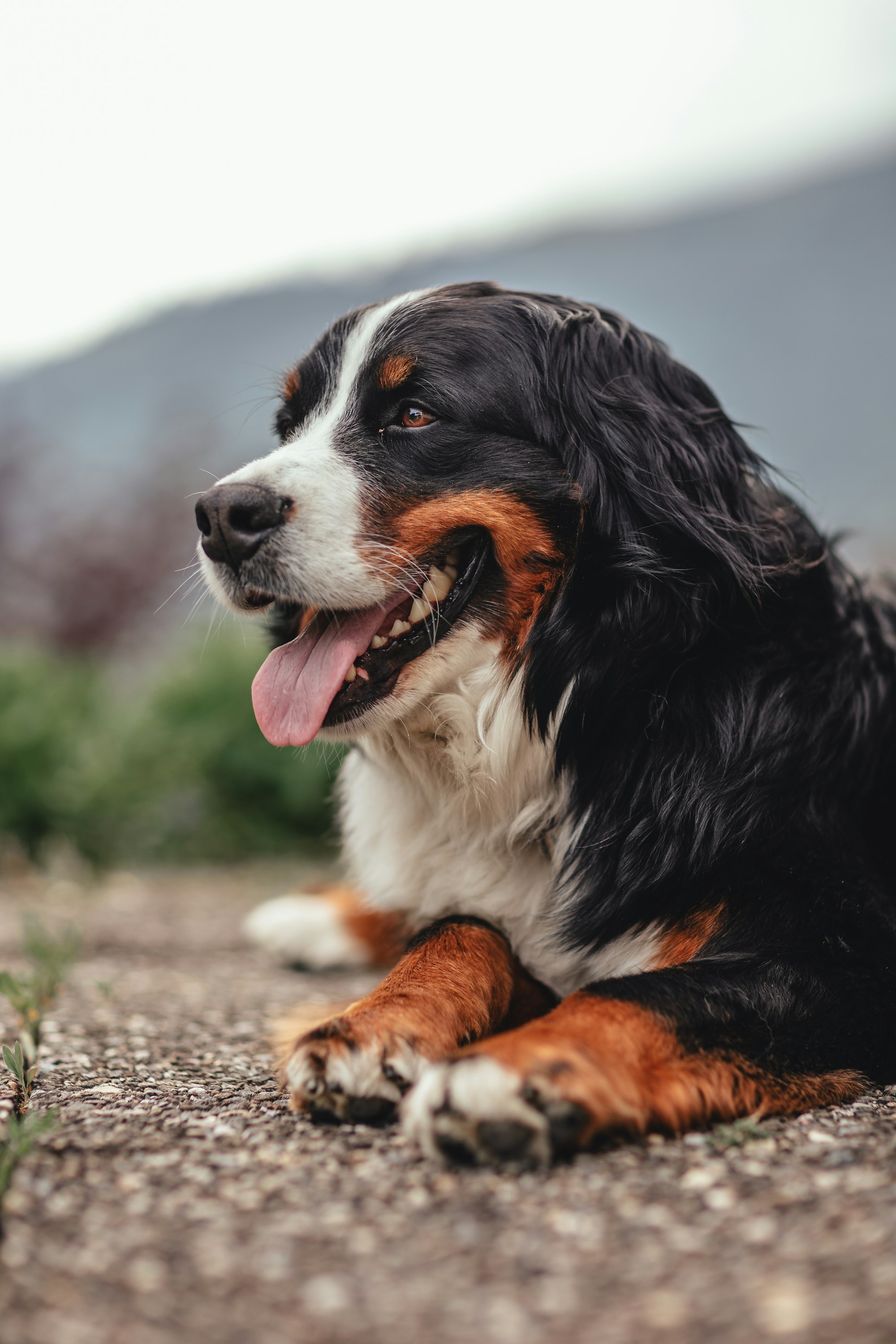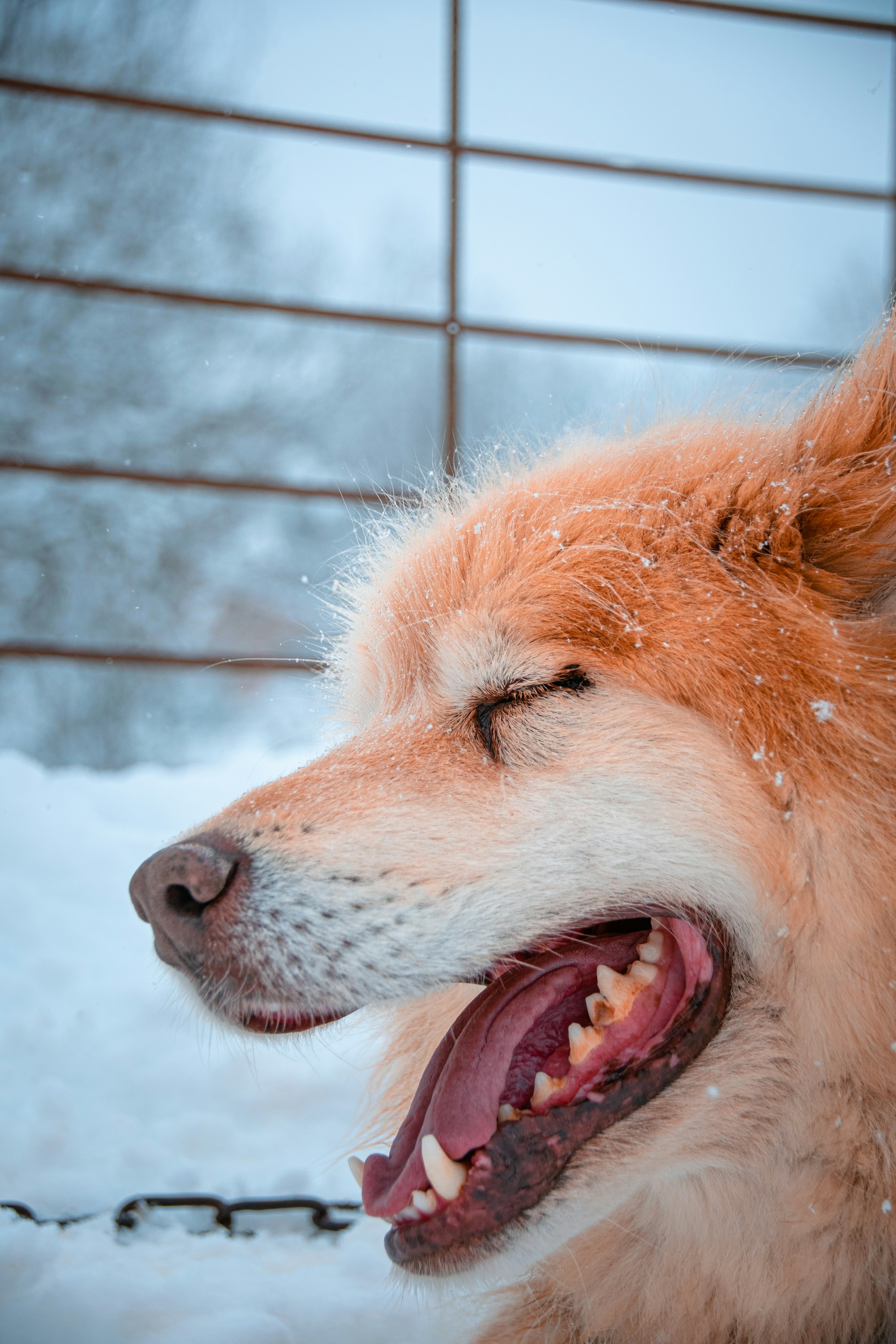Welcome to a comprehensive guide on the Greater Swiss Mountain Dog, a magnificent breed known for its strength, loyalty, and gentle nature. Here, we will delve into the history, physical characteristics, temperament, training needs, grooming requirements, health concerns, and more. Whether you're considering adding a Greater Swiss Mountain Dog to your family or simply want to learn about this remarkable breed, this article is your go-to resource.

History and Origin
The Greater Swiss Mountain Dog, or Swissy for short, is one of the oldest Swiss mountain dog breeds. Its origins can be traced back to the Swiss Alps, where it was developed as a versatile working dog. These dogs were initially used for herding livestock, pulling carts, and guarding farms. The breed's strength, intelligence, and endurance made them indispensable companions to farmers and dairymen.
Physical Characteristics
The Greater Swiss Mountain Dog is a breed of impressive size and strength. Here are some key physical characteristics of this magnificent canine:
Size: The Greater Swiss Mountain Dog is a large breed, with males typically standing between 25.5 to 28.5 inches (65 to 72 cm) at the shoulder, and females slightly smaller at 23.5 to 27 inches (60 to 68 cm).
Weight: These dogs are hefty and robust, with males weighing between 105 to 140 pounds (48 to 64 kg), and females ranging from 85 to 110 pounds (38 to 50 kg).
Body Structure: The Swissy has a well-muscled and sturdy build. They have a broad chest, deep and strong. Their body is slightly longer than their height, giving them a balanced appearance.
Coat: The Greater Swiss Mountain Dog boasts a dense double coat that protects from the elements. The outer coat is thick, short, and straight, while the undercoat is dense and insulating. The dog coat color is predominantly tricolor, consisting of a black base with rust markings on the cheeks, eyebrows, chest, and legs, along with white markings on the face, chest, and a blaze on the forehead.
Head: The head of the Greater Swiss Mountain Dog is proportionate to its body size. It is broad, with a flat skull and a well-defined stop. The eyes are medium-sized, almond-shaped, and dark brown. Their ears are medium-sized, triangular in shape, and set high on the head, hanging close to the cheeks.
Tail: Swissies have a thick and strong tail that reaches the hocks. It is usually carried in a slight curve when the happy dog is relaxed and may be raised slightly higher when alert or excited.
Overall Appearance: The Greater Swiss Mountain Dog exudes a powerful and majestic presence. Their sturdy build, well-developed muscles, and expressive face contribute to their striking appearance.
Temperament and Personality Traits
Despite their imposing size, Greater Swiss Mountain Dogs are known for their gentle and friendly nature. Here are some key temperament and personality traits of this wonderful breed:

Loyal: Swissies are incredibly loyal and devoted to their families. They form strong bonds with their owners and thrive on human companionship. They are known for their unwavering loyalty and will always strive to protect and please their loved ones.
Gentle: While their size might be intimidating, Greater Swiss Mountain Dogs have a gentle and kind demeanor. They are generally patient and tolerant, making them great companions for families, including children.
Alert and Watchful: Swissies possess a keen sense of awareness and are naturally watchful. They are quick to detect any potential threats or changes in their environment, making them excellent watchdogs. They will alert their family to any unusual activity or unfamiliar individuals.
Confident: With a confident disposition, Greater Swiss Mountain Dogs have a stable temperament. They are typically calm and composed, showing self-assurance in various situations.
Social: These dogs generally get along well with other pets when properly socialized from a young age. They can adapt to living with other dogs and cats, fostering harmonious relationships within the household.
Gentle with Children: The Greater Swiss Mountain Dog is known for its patience and gentleness with children. They have a natural affinity for youngsters and are often protective of them. However, as with any interaction between dogs and children, supervision is essential to ensure safety and prevent any accidental harm.
Intelligent: Swissies are intelligent dogs and are quick to learn and understand commands. They are receptive to training when it is conducted using positive reinforcement techniques such as rewards, praise, and treats.
Moderate Energy Level: While Greater Swiss Mountain Dogs have an active and playful side, they are generally moderate in terms of energy level. Regular exercise and mental stimulation are still significant to keep them physically and mentally healthy.
Overall, the Greater Swiss Mountain Dog combines strength, loyalty, and gentle nature, making them a reliable and trustworthy companion for individuals and families alike.
Training and Socialization
Training and socialization are crucial aspects of raising a well-behaved and balanced Greater Swiss Mountain Dog. Here are some key points to consider:
Start Early: Begin training and socializing your Swissy puppy as early as possible. Early socialization helps them become familiar with different people, animals, and environments, promoting their confidence and adaptability.
Positive Reinforcement: Use positive reinforcement techniques such as rewards, treats, and praise to motivate and encourage your dog during training sessions. Swissies respond well to positive reinforcement and will be eager to please their owners.
Consistency and Patience: Consistency is key when training a Greater Swiss Mountain Dog. Establish clear rules and boundaries and be patient with your dog's learning process. Avoid harsh or punitive methods, as they can damage the trust and bond between you and your Swissy.
Obedience Training: Teach your Swissy basic obedience commands such as sit, stay, come, and down. These commands are not only essential for their safety but also help establish you as the pack leader and ensure a well-behaved dog.
Leash Training: Due to their large size and strength, leash training is crucial for Greater Swiss Mountain Dogs. Teach them to walk politely on a leash, without pulling or lunging. This will make walks more enjoyable for both you and your furry friend.

Exposure to Various Environments: Expose your Swissy to different environments, including parks, cities, and social gatherings. This exposure will help them become comfortable and well-adjusted in various situations.
Continued Socialization: Continue socializing your Greater Swiss Mountain Dog throughout their life. Arrange playdates with other well-mannered dogs and expose them to different people and experiences.
This will help them remain friendly and confident in various social settings. Remember, training and socialization should be an ongoing process. By investing time and effort into training your Greater Swiss Mountain Dog, you will nurture a well-behaved and balanced companion that will bring joy and happiness to your life.
Exercise and Activity Requirements
The Greater Swiss Mountain Dog is an active breed that requires regular exercise and mental stimulation to stay happy and healthy. Here are some important considerations regarding their exercise and activity needs:
Daily Exercise: Swissies benefit from at least 30 to 60 minutes of physical activity every day. This can include brisk walks, jogging, hiking, or playing fetch in a securely fenced yard.
Mental Stimulation: In addition to physical exercise, mental stimulation is crucial for the Greater Swiss Mountain Dog. Engage their minds with puzzle toys, interactive games, and obedience training sessions. This will help prevent boredom and destructive behaviors.
Moderate Intensity: While Swissies have moderate exercise needs, it's important not to overexert them, especially during puppyhood. Avoid intense activities that can strain their developing bones and joints. As they mature, gradually increase the intensity and duration of exercise.
Outdoor Time: Swissies enjoy spending time outdoors, exploring their surroundings. Ensure they have access to a securely fenced yard or a safe outdoor area where they can roam and play freely.
Swimming and Water Activities: Many Greater Swiss Mountain Dogs enjoy swimming, which is an excellent low-impact exercise. If you have access to a safe body of water, allow them to swim under supervision. However, always be cautious of their abilities and provide life jackets if needed.
Interactive Play: Engage in interactive play sessions with your Swissy using toys such as ropes, balls, or interactive treat-dispensing toys. This will help burn off their energy and strengthen the bond between you and your dog.
Adaptability: The Greater Swiss Mountain Dog is adaptable to various lifestyles. While they appreciate daily exercise, they can adapt to living in urban environments as long as their exercise needs are met. However, access to open spaces and nature is ideal for their overall well-being.

Remember, the exercise requirements may vary based on your dog's age, health, and individual energy levels. Always monitor their comfort and adjust their exercise routine accordingly. Regular exercise not only keeps them physically fit but also contributes to their mental well-being.
Grooming and Care
Despite their thick coat, the grooming needs of the Greater Swiss Mountain Dog are relatively low. Here are some prominent grooming and care tips for this breed:
Coat Care: The Swissy has a short, dense, and weather-resistant double coat. Regular brushing with a firm bristle brush or a grooming glove helps remove loose hair and keep the coat in good condition. Pay extra attention during shedding seasons to prevent excessive hair accumulation.
Bathing: Swissies have a naturally clean coat and do not require frequent bathing. Bathe them when necessary, using a mild dog shampoo recommended by your veterinarian. Avoid over-bathing, as it can strip their coat of natural oils and cause dryness.
Ears: Regularly check and clean your Swissy's ears to prevent infections. Use a veterinarian-recommended ear cleanser and gently wipe the visible part of the ear, avoiding deep insertion into the ear canal. If you notice any signs of redness, swelling, or discharge, consult your veterinarian.
Nails: Trim your dog's nails regularly to maintain their paw health. Long nails can cause discomfort and affect their gait. If you are unsure about nail trimming, consult a professional groomer or a veterinarian for assistance.
Dental Care: Good oral hygiene is essential for the overall health of your Greater Swiss Mountain Dog. Brush their teeth regularly using a dog-specific toothbrush and toothpaste. Additionally, provide dental chews or toys that promote dental health.
Routine Veterinary Care: Schedule regular check-ups with a veterinarian to ensure your Swissy's health and well-being. Vaccinations, parasite prevention, and dental examinations should be part of their routine care.
Exercise Caution in Heat: Greater Swiss Mountain Dogs are not well-suited for hot and humid weather due to their thick coat and heavy build. Exercise caution during hot temperatures to prevent heat-related issues. Provide shade, fresh water, and avoid exercising them during the hottest parts of the day.
By following these grooming and care guidelines, you can keep your Greater Swiss Mountain Dog's coat healthy, prevent common health issues, and ensure their overall well-being.
Health Issues and Lifespan
The Greater Swiss Mountain Dog is generally a healthy breed. However, like all dogs, they are prone to certain health issues. Here are some common health concerns associated with the breed:
Hip Dysplasia: This is a common orthopedic condition where the hip joint doesn't develop properly. It can lead to discomfort, lameness, and arthritis. Responsible breeders perform hip evaluations to reduce the risk of hip dysplasia in their breeding lines.
Elbow Dysplasia: Elbow dysplasia is a condition that affects the elbow joint, leading to lameness and arthritis. It occurs due to abnormal growth and development of the joint. Regular veterinary check-ups and responsible breeding practices help minimize the risk.
Bloat: Also known as gastric dilatation-volvulus (GDV), bloat is a life-threatening condition that affects deep-chested breeds like the Greater Swiss Mountain Dog. It involves the stomach filling with gas and twisting. Immediate veterinary attention is crucial if bloat is suspected.
Eye Issues: Swissies may be prone to certain eye conditions, including entropion (inward rolling of the eyelids), ectropion (outward rolling of the eyelids), and progressive retinal atrophy (PRA). Regular eye examinations by a veterinary ophthalmologist can help detect and manage these conditions.
Cancer: Unfortunately, cancer can affect Greater Swiss Mountain Dogs, as it does many breeds. Regular check-ups, early detection, and appropriate veterinary care can help improve outcomes if cancer is detected.
Lifespan: The average lifespan of a Greater Swiss Mountain Dog is typically around 8 to 11 years. However, with proper care, nutrition, and regular veterinary check-ups, some Swissies may live even longer.
It's important to note that not all Swissies will develop these health issues. Responsible breeders prioritize the health of their dogs and conduct appropriate health screenings to reduce the risk of hereditary conditions. By choosing a reputable breeder and providing proper care, you can help ensure your Greater Swiss Mountain Dog leads a happy and healthy life.
Diet and Nutrition
Proper nutrition is vital for the overall health and well-being of a Greater Swiss Mountain Dog. A high-quality dog food formulated for large breeds is recommended. Portion control is essential to prevent obesity, as excess weight can contribute to joint problems. Consulting with a veterinarian will help determine the most suitable diet for your Swissy based on their age, weight, and activity level.
Living with a Greater Swiss Mountain Dog

Living with a Greater Swiss Mountain Dog requires ample space and a dedicated owner. They thrive in homes with fenced yards, where they can have room to roam and explore. These dogs are affectionate and crave human companionship, so they may not do well in households where they are left alone for extended periods. With proper care, love, and attention, a Swissy can become a cherished member of your family.
Choosing a Reputable Breeder
When considering adding a Greater Swiss Mountain Dog to your family, it's essential to choose a reputable breeder. Responsible breeders prioritize the health and well-being of their dogs and carefully select breeding pairs. They should provide proper health clearances and be knowledgeable about the breed. Visiting the breeder's facility and meeting the parent dogs can give you valuable insights into the breeding program.
Common Misconceptions
There are a few misconceptions about Greater Swiss Mountain Dogs that are important to address. One common misconception is that they are aggressive due to their size, but in reality, they are gentle and good-natured. Additionally, some people assume that their large size makes them unsuitable for families with small children, but Swissies are generally great with kids when properly socialized.
Frequently Asked Questions (FAQs)
1. Q: Are Greater Swiss Mountain Dogs good with children?
A: Yes, Swissies are generally good with children when properly socialized.
2. Q: Do Greater Swiss Mountain Dogs require a lot of exercise?
A: Yes, they have moderate to high exercise needs and enjoy various activities.
3. Q: Are Greater Swiss Mountain Dogs suitable for apartments?
A: Swissies thrive in homes with ample space and fenced yards.
4. Q: Do Greater Swiss Mountain Dogs shed a lot?
A: They have a dense coat and shed moderately, requiring regular brushing.
5. Q: How can I find a reputable Greater Swiss Mountain Dog breeder? A: It's essential to research and visit breeders, ensuring they prioritize the health and well-being of their dogs.
Conclusion
In conclusion, the Greater Swiss Mountain Dog is a remarkable breed with a rich history and a loving temperament. They make devoted family pets and excel in various activities, including obedience, carting, and therapy work. However, owning a Swissy requires a commitment to providing proper care, exercise, and socialization. If you're looking for a loyal, gentle, and majestic companion, the Greater Swiss Mountain Dog may be the perfect choice for you.




